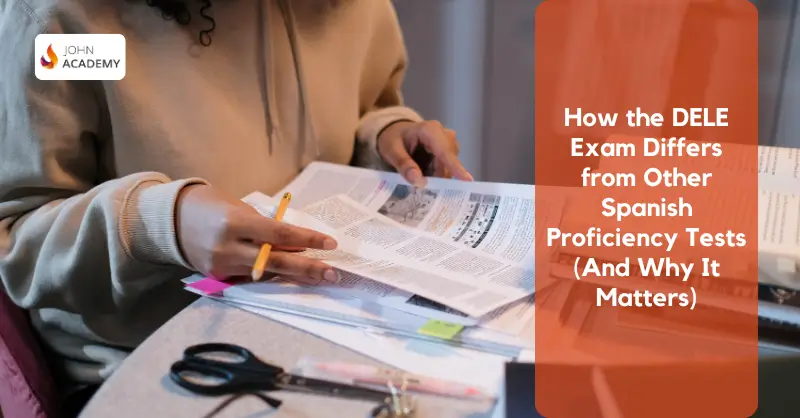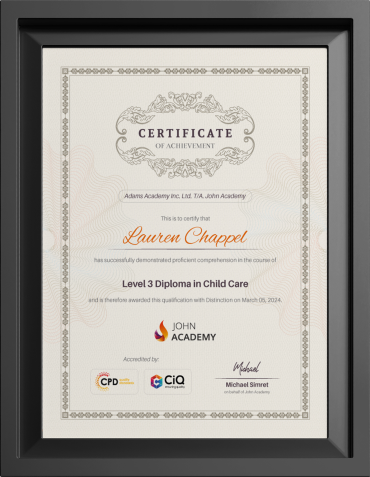
Learning Spanish is an incredible journey, and for many, proving their proficiency with an official certificate is a significant milestone. Among the many Spanish proficiency tests available, the DELE (Diplomas de Español Como Lengua Extranjera) stands out. But what makes it unique? More importantly, why should you consider it over other exams like the SIELE or ACTFL OPI? Let’s dive in.
DELE is Globally Recognized and Officially Endorsed
Unlike some other tests, the DELE is certified by the Instituto Cervantes and the Spanish Ministry of Education and Science. This means that:
- It’s officially recognised worldwide by employers, universities, and governments.
- It holds more weight in contexts requiring proof of Spanish proficiency, such as applying for Spanish citizenship or certain academic programs.
This official stamp of approval can open doors that other tests might not.
Clear Levels Aligned with the CEFR Framework
The DELE exam strictly follows the Common European Framework of Reference for Languages (CEFR), with levels from A1 (beginner) to C2 (proficient). This structured approach allows candidates to choose the level that matches their proficiency.
If you’re a beginner, you won’t be expected to demonstrate skills beyond A1. Similarly, if you’re advanced, the C1 or C2 exam allows you to showcase a higher level of sophistication in Spanish. This flexibility is ideal for targeted personal and professional goals.
It’s a Pass-or-Fail Exam
Unlike the SIELE (Servicio Internacional de Evaluación de la Lengua Española), which provides a numerical score, the DELE is pass-or-fail. If you meet the required proficiency for your chosen level, you’ll receive your diploma.
Why It Matters? This binary outcome ensures clarity. A DELE diploma certifies that you meet or exceed the expectations of a specific CEFR level, leaving no ambiguity about your capabilities.
Permanent Validity
One of the most significant advantages of the DELE is its lifetime validity. Once you’ve passed, your certification never expires. Other tests, such as the TOEFL or IELTS for English, often expire after two years. The DELE saves you time, money, and the stress of retaking the exam in the future.
Tailored to Real-World Spanish
The DELE Spanish proficiency exam tests real-world language skills—not just your ability to memorise vocabulary or grammar rules. It emphasises:
- Reading comprehension (newspapers, articles, etc.)
- Listening skills (interviews, conversations, announcements)
- Writing skills (emails, essays, reports)
- Speaking skills (interviews, discussions)
This practical focus ensures you’re prepared to navigate real-life situations, whether in a professional, academic, or casual setting.
Regional Variations Are Considered
Spanish is spoken in over 20 countries, each with unique accents and vocabulary. The DELE reflects this diversity by including texts and audio from various Spanish-speaking regions. The exam ensures fairness by exposing you to a variety of Spanish, making it inclusive and globally relevant.
Why Choose DELE Over Other Exams?
While exams like the SIELE or ACTFL OPI have their merits, the DELE remains a top choice for several reasons:
- SIELE: Offers flexibility and a quick turnaround, but results are valid for only two years.
- ACTFL OPI: Focuses heavily on speaking and listening but lacks the comprehensive CEFR alignment of the DELE.
The DELE’s depth, lifetime validity, and official recognition make it the gold standard for proving Spanish proficiency.
Final Thoughts
If you’re serious about learning Spanish and want a certification that truly reflects your skills, the DELE is worth considering. Whether you’re aiming for academic success, career advancement, or personal achievement, this exam offers unparalleled credibility and value.
Start your DELE journey today and unlock a world of opportunities!
FAQ
Yes! Many countries, including Spain, accept DELE certification as part of their immigration, residency, or citizenship application processes. It is particularly useful for demonstrating language competency at levels like A2 or B1, often required for citizenship.
- A1/A2: Basic ability to communicate in familiar situations.
- B1/B2: Independent user who can express themselves effectively in everyday and professional contexts.
- C1/C2: Proficient user with advanced or near-native fluency, capable of nuanced discussions and formal communication.
Preparation time varies based on your current skill level and the exam level you’re aiming for. On average:
- A1-A2: 3-6 months of study.
- B1-B2: 6-12 months.
- C1-C2: Over 12 months, depending on immersion and practice intensity.
The difficulty depends on the level you take. Higher levels (C1 and C2) require advanced vocabulary, grammar, and cultural knowledge, while A1 and A2 are more accessible for beginners. Proper preparation, including practice exams, increases your chances of success.
If you don’t pass, you can retake the exam as many times as needed. However, the results for each attempt are independent, meaning your prior performance doesn’t impact future exams.
The cost varies by country and exam level, but fees typically range from $100 to $250 USD. Advanced levels (C1-C2) are usually more expensive than beginner levels (A1-A2).
The DELE exam is offered at accredited test centers worldwide, including universities, cultural institutions, and language schools. You can check the Instituto Cervantes website for a test center near you.
Each section (reading, listening, writing, speaking) is scored out of a total of 100 points. To pass, you must achieve at least 30 points in each section and a total score of 60 or higher. If you fail one section, you fail the entire exam.
Absolutely! While it requires significant dedication, achieving a C2 diploma is possible for non-native speakers. It demonstrates near-native fluency, mastery of grammar, idioms, and cultural nuances.
Yes, many resources are available, including official guides, practice exams, online courses, and private tutors specializing in DELE preparation. The Instituto Cervantes also offers preparatory materials.
The DELE exam is held several times a year, typically in April, May, July, October, and November. Registration deadlines vary, so it’s important to plan in advance.

